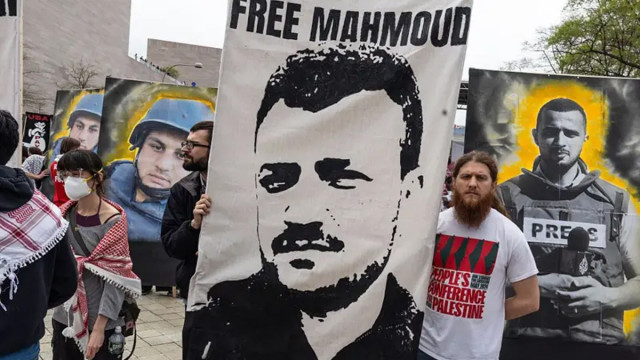Louisiana, Apr 12 (V7N) — A U.S. immigration court has approved the deportation of Mahmoud Khalil, a Columbia University student and green card holder, for participating in a protest supporting Palestine — triggering nationwide outrage and legal challenges.
Khalil, 30, was arrested a month ago and has since been detained at a Louisiana detention center, according to a report by the BBC. The court ruled under a Cold War-era immigration law, which allows deportation if an individual’s presence is deemed “against American foreign policy interests.” Khalil has no criminal record, and his actions have been widely described as peaceful and lawful.
He emerged as a prominent figure during anti-Gaza war protests at Columbia University. His arrest and now-approved deportation have sparked protests, rallies, and strong criticism from rights organizations across the country.
Lawyers for Khalil have until April 23 to appeal the decision. They have also filed a separate lawsuit in New Jersey federal court, challenging the constitutionality of his detention and deportation. A favorable ruling there could block his removal.
The American Civil Liberties Union (ACLU) criticized the court’s decision as "preordained," noting that the only evidence submitted by the U.S. government was a letter from Secretary of State Marco Rubio, which vaguely claimed Khalil's presence posed a threat to “Jewish students” — despite no evidence of violence or hate speech.
Khalil's legal team emphasized that his protests were entirely peaceful, and no charge of incitement, religious hatred, or violence has been presented in court. “He is being targeted for his beliefs, not his actions,” one of his attorneys stated.
Despite the backlash, U.S. Homeland Security Secretary Christie Noem welcomed the court’s ruling, further igniting debates over freedom of speech, immigration policy, and protest rights in the United States.
As pressure mounts from human rights groups, legal experts warn the ruling could set a dangerous precedent for using immigration laws to suppress dissent.
END/MSS/AJ































Comment: